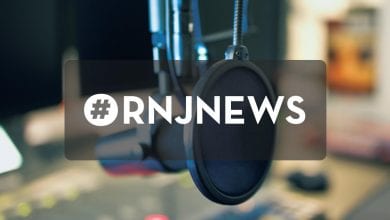
AG Platkin, Division of Consumer Affairs announce nationwide $10M settlement with major wireless carriers
AT&T, Verizon, T-Mobile Agree to Revamp Advertising
NEW JERSEY – Attorney General Matthew J. Platkin and the Division of Consumer Affairs, together with 50 other attorneys general, announced a $10.25 million agreement with the nation’s largest cell phone companies to resolve an investigation into their allegedly misleading and confusing advertising and sales tactics.
Under the terms of the Assurance of Voluntary Compliance (AVC), AT&T, Verizon Wireless, and T-Mobile each agreed to change how they market, advertise, and sell wireless services to prospective customers.
“Wireless carriers have every right to compete for customers on price and features, but they don’t have the right to ensnare consumers with misleading advertisements and offers that hide or misrepresent the true cost of cell phone service,” Platkin said. “We will continue to make sure that New Jersey customers know what they are getting and know what they are paying for.”
“New Jersey consumers are entitled to clear and accurate information in the marketplace,” said Cari Fais, Acting Director of the Division of Consumer Affairs. “This settlement requires cell phone companies to be transparent in their advertising and marketing, and sends the message that misleading business tactics will not be tolerated.”
The states allege that the wireless carriers’ advertisements, including those that appeared in print, television, and online, did not disclose or misrepresented material terms and conditions of their offers, in violation of their consumer protection laws. Under the New Jersey Consumer Fraud Act, N.J.S.A. 56:8-2, “any commercial practice that is unconscionable or abusive, deception, fraud, false pretense, false promise, misrepresentation, or the knowing, concealment, suppression, or omission of any material fact” is an unlawful practice.
The AVCs address the common misleading advertising practices of the wireless carriers, including misrepresentations concerning: (1) “unlimited” data advertisements, which failed to clearly and conspicuously disclose material limitations; (2) “free” phone offers, which failed to clearly and conspicuously disclose material conditions; (3) monetary incentives to “switch” wireless networks, which failed to clearly and conspicuously disclose how the monetary incentives would be provided; and (4) wireless carrier plan comparisons, which failed to disclose material differences.
Under the terms of the settlements, the companies are required to:
- disclose the material terms of an offer to pay, credit, or reimburse the consumer for switching carriers, including specifying the form in which the payment or reimbursement will be made and when;
- make all advertisements or representations to consumers truthful, accurate, and non-misleading;
- disclose any restrictions that may apply about the speed of unlimited data, and display those restrictions in such a way that they cannot be missed by the person viewing the advertisement, whether printed or online;
- refrain from representing, expressly or by implication, that the mobile data in a capped data plan is unlimited;
- specify all the terms and conditions that must be met for a customer to receive a “free” device, including any fees (such as activation or shipping and processing) and lease agreements;
- refrain from increasing the cost of purchasing or leasing a device for the purpose of recouping all or part of the cost of the “free” device or service;
- make clear that a lease agreement is not an agreement to purchase the device;
- disclose the comparisons that are being used to make a pricing or savings claim compared to other companies or services;
- train customer service representatives about these changes, including staff who meet with consumers as well as those who create advertising; and
- appoint a representative to handle consumer complaints.
Verizon (which includes TracFone and Cellco Partnership) and T-Mobile (which merged with Sprint in 2020) will each pay a little more than $4 million, and AT&T (which includes Cricket Wireless) will pay about $2 million.
New Jersey’s share of the overall settlement is $202,337.40 ($95,038.80 from T-Mobile; $58,526.51 from Verizon; and $48,772.09 from AT&T) to be used for purposes that may include future consumer protection enforcement, consumer education, or compliance monitoring.





